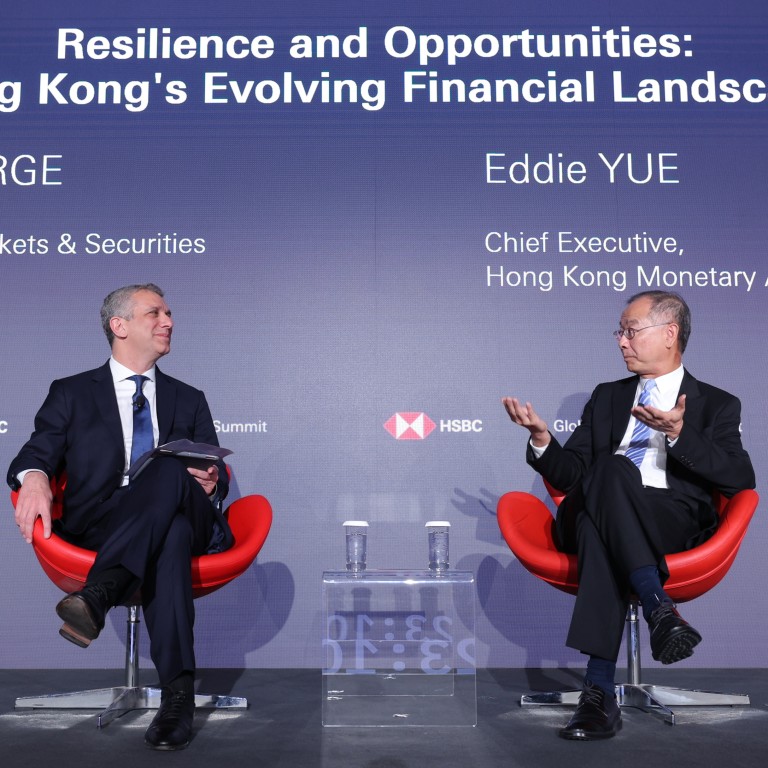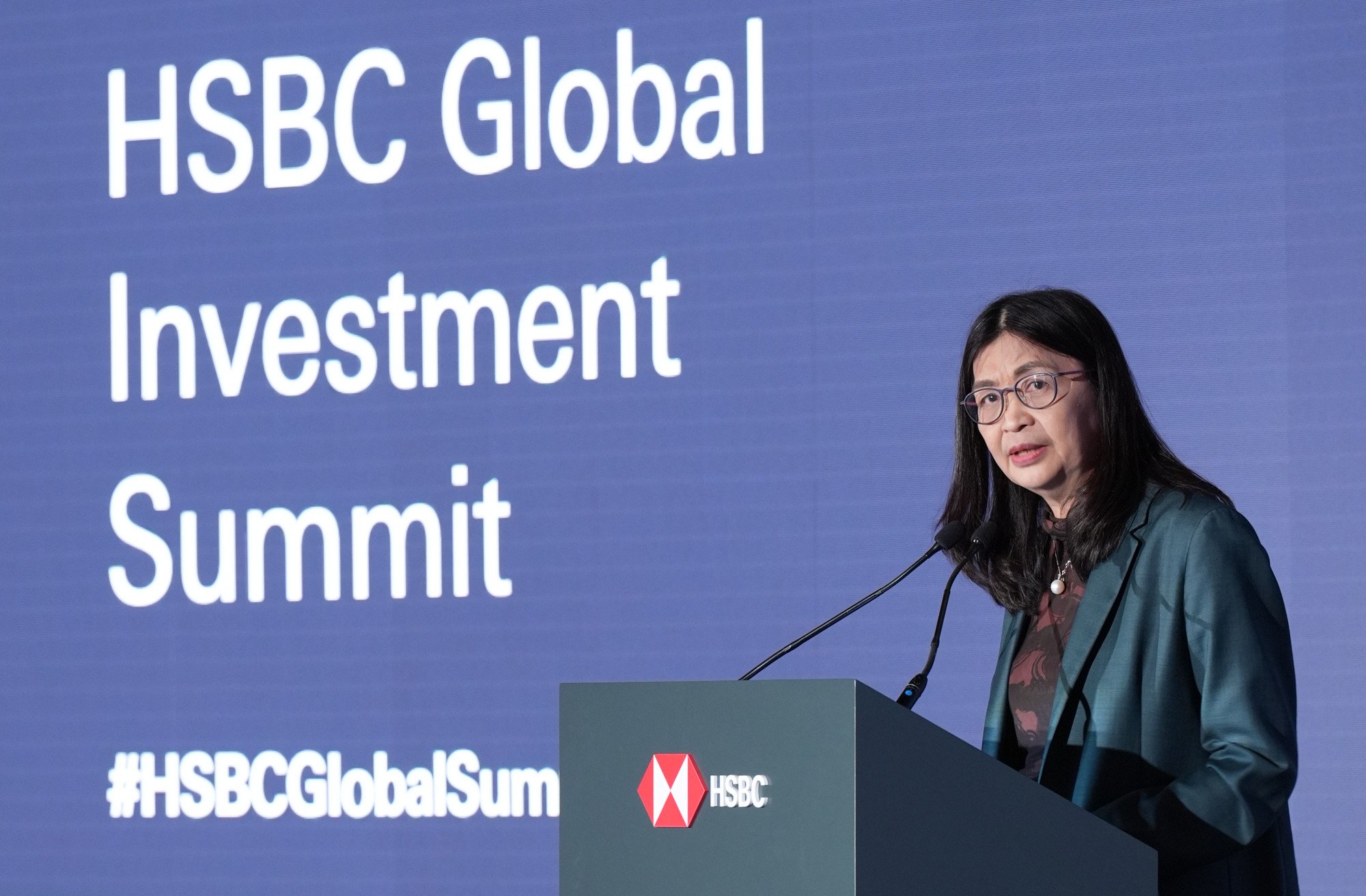
HSBC summit: Hong Kong’s financial ecosystem is robust, resilient and unwavering, HKMA’s Eddie Yue and SFC’s Julia Leung say
- ‘Look at the facts. Hong Kong’s ecosystem is robust,’ Eddie Yue says during fireside chat
- Summit shows HSBC’s belief that Hong Kong is a dynamic hub for capital, business and opportunity: SFC’s Leung
“Hong Kong has gone through a lot of challenges in recent years, but we’ve proven our resilience,” Eddie Yue Wai-man, CEO of the Hong Kong Monetary Authority (HKMA), said during a fireside chat.
That the city’s market has shown its credibility and competence is illustrated by Hong Kong’s deposits expanding by a cumulative 21 per cent in the past five years, he said.
“You may still hear noises or perceptions … [that] Hong Kong’s growth as a financial centre is fading,” Yue said. “But if you look at the numbers, they paint for you a very different story.
“Look at the facts. Hong Kong’s ecosystem is robust.”
More than 2,500 market professionals and 300 corporate executives have gathered in Hong Kong to discuss the top issues affecting the industry and the world. HSBC, the city’s biggest commercial bank, is hosting Hong Kong’s largest investment conference this week.
HSBC summit: Fred Hu says idea that China is ‘uninvestible’ is ‘shallow and lazy’
“The fact that HSBC has hosted this landmark summit demonstrates its belief that Hong Kong is a dynamic hub for capital, business and opportunity,” Julia Leung Fung-yee, CEO of the Securities and Futures Commission (SFC), said in her keynote address.
“The city has not wavered.
“Despite challenges that have continued to come our way, our free economy, robust financial markets, regulation, rule of law and confidence of having all of you here today allow us to play the long game, even during the past crisis.”

The total number of hedge-fund managers, private-equity fund managers and family offices in Hong Kong has increased by 24 per cent over the past three years, Leung added. The SFC said it will continue to support Hong Kong’s market competitiveness by enhancing stock market liquidity and efficiency.
HKEX eyes Saudi, Indonesian companies to win more IPOs from emerging markets
Some of the uses tested so far include online payments, payments in shops, the collection of government payouts, tokenised deposits, tokenised asset settlement and Web3 trading and clearing.
Hong Kong is also the testing ground for the e-CNY, China’s CBDC. The Hong Kong government hopes to extend the use of CBDCs to areas such as remittances and securities transactions.
The city also stands to gain from opportunities arising in the Middle East, Wilfred Yiu, the head of markets at Hong Kong Exchanges and Clearing, told a panel.

Countries in the Middle East are actively looking to diversify their economies and in this transition will require capital, human resources and participation from different sectors and experts, he said.
“The job for all of us is how can we bridge capital and opportunity better together, and how can we leverage Hong Kong as the hub for connecting capital on the mainland with the rest of the Middle East,” Yiu said.
Hong Kong’s open market and financial ecosystem mean it is well placed in the region to offer such capital flows, he added.
Saudi Arabia to showcase futuristic megacity at Hong Kong investor roadshow
The city will continue to thrive as it is the No. 1 destination for international investors seeking access to mainland China’s markets, as well as the leading offshore yuan hub, HKMA’s Yue said. Hong Kong processes more than 70 per cent of yuan payments and, with the growth of its yuan products and infrastructure, the city will continue to be relevant.
“As the biggest international intermediary for China’s capital markets, Hong Kong will continue to thrive because of the country’s long-term growth story,” added SFC’s Leung.
“Let’s stay resilient and agile in strengthening both existing and new markets.”
Additional reporting by Jiaxing Li

